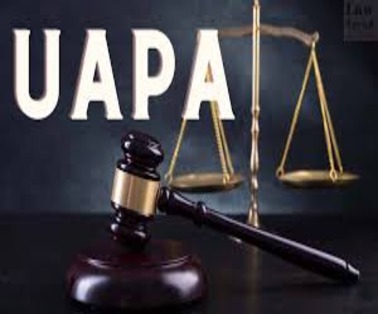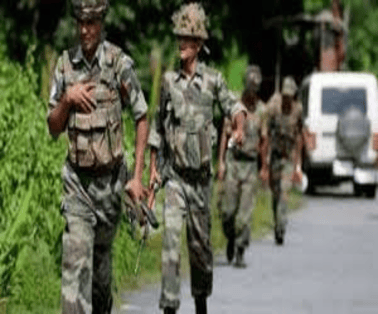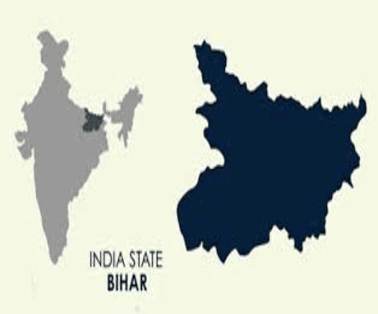Gangster Goldy Brar, the mastermind behind the murder of Punjabi singer Sidhu Moosewala, was declared a designated terrorist by the Centre under the Unlawful Activities Prevention Act (UAPA)
Key Points On Unlawful Activities Prevention Act
- Amendments introduced in 2019 brought in provisions by which the Centre can declare individuals — not only organisations — as designated terrorists.
- The 2019 Bill sought to empower the central government to designate an individual a “terrorist” if they are found committing, preparing for, promoting, or involved in an act of terror.
- A similar provision already existed in Part 4 and 6 of the legislation for organisations that can be designated as a “terrorist organisation”.
- The central government may designate an individual as a terrorist through a notification in the official gazette, and add his name to the Fourth Schedule to the UAPA.
- The government is not required to give an individual an opportunity to be heard before such a designation.
- At present, in line with the legal presumption of an individual being innocent until proven guilty, an individual who is convicted in a terror case is legally referred to as a terrorist, while those suspected of being involved in terrorist activities are referred to as terror accused.
Process Of Unlawful Activities Prevention Act
- The designation of an individual as a global terrorist by the United Nations is associated with sanctions including travel bans, freezing of assets and an embargo against procuring arms.
- The 2019 amendment, however, did not provide any such detail.
- The amendment also gave the Centre the power to remove a name from the schedule when an individual makes an application.
- If an application filed by an individual declared a terrorist is rejected by the government, they have the right to seek a review within one month after the application is rejected.
- Under the amendment, the central government set up a review committee comprising a chairperson (a retired or sitting judge of a High Court) and three other members.
- The review committee will be empowered to order the government to delete the name of the individual from the schedule that lists “terrorists”, if it considers the order to be flawed.
- Apart from these two avenues, the individual can also move the courts challenging the government’s order.
Unlawful Activities Prevention Act, 1967

Features of Unlawful Activities Prevention Act
- Under the UAPA, the investigating agency can file a charge sheet in maximum 180 days after the arrests and the duration can be extended further after intimating the court.
- The 2004 amendment added “terrorist act” to the list of offences to ban organisations for terrorist activities
- Till 2004, “unlawful” activities referred to actions related to secession and cession of territory.
- In August, Parliament cleared the Unlawful Activities (Prevention) Amendment Bill, 2019 to designate individuals as terrorists on certain grounds provided in the Act.
- The Act empowers the Director General of National Investigation Agency (NIA) to grant approval of seizure or attachment of property when the case is investigated by the said agency.
- The Act empowers the officers of the NIA, of the rank of Inspector or above, to investigate cases of terrorism in addition to those conducted by the DSP or ACP or above rank officer in a state
Provisions Of The Unlawful Activities Prevention Act
UAPA provides special procedures to deal with terrorist activities, among other things; the central government may designate an individual/organization as a terrorist/terrorist organization if it:
- Commits/participates in acts of terrorism,
- Prepares for terrorism,
- Promotes terrorism, or
- Is otherwise involved in terrorism.
Criticism of Unlawful Activities Prevention Act
- Experiences of Anti-terror laws in India such as POTA and TADA reveal that they are often misused and abused.
- An individual cannot be called a ‘terrorist’ prior to conviction in a court of law, it subverts the principle of “innocent until proven guilty”.
- The law could also be used against political opponents and civil society activists who speak against the government and brand them as “terrorists.”
- Critics argue that the law, especially after 2019 amendment gives unfettered powers to investigating agencies.
- Some experts feel that it is against the federal structure, given that ‘Police’ is a state subject under 7th schedule of Indian Constitution.
Argument In Favour of Unlawful Activities Prevention Act
- Designating an individual as a terrorist in line with international practices and to facilitate speedy investigation and prosecution of terrorist offences.
- Preventing certain illegal acts of people and organizations especially related to terrorism can be prevented.
- India’s integrity and sovereignty cannot be undermining at any cost so it gives power to state (government) to deal with illegal acts of people
To Download Monthly Current Affairs PDF Click here
Get Inspiration from CLAT 2025 Topper
Click here to get a free demo
Everything About CLAT 2025



